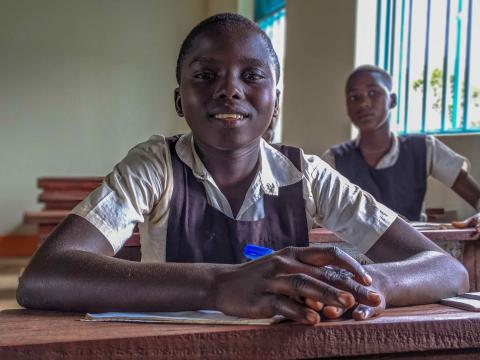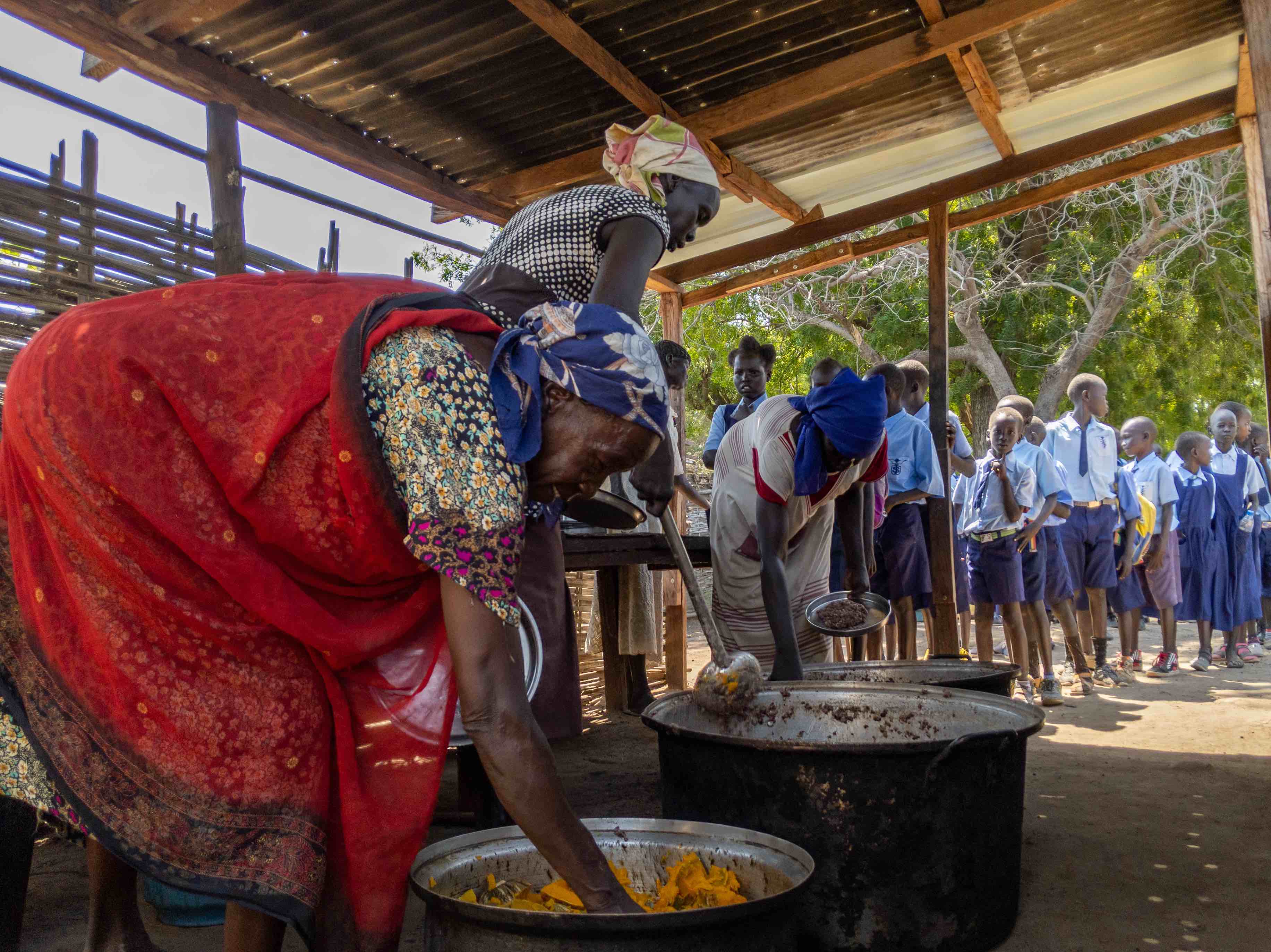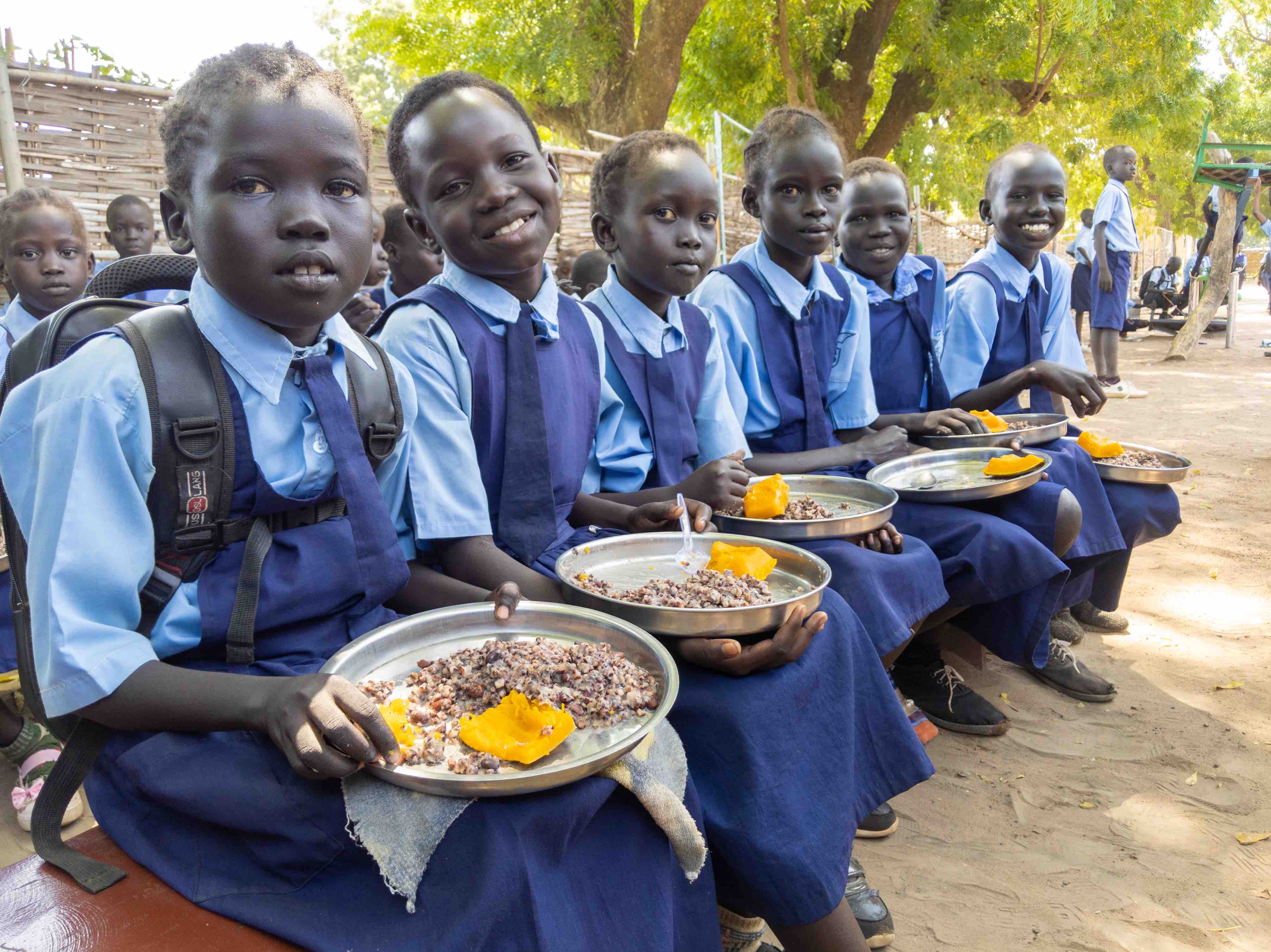1.9 million South Sudanese children despair over closure of schools due to COVID-19; mothers worried of the future

183,000 will also miss healthy meals from World Vision’s school feeding program
Forty-five percent of South Sudan’s population are children and an estimated 3.1 million have no access to school and any educational services. At least 60 percent of schools were either destroyed or partially damaged during the long-running conflict but the majority of the remaining ones.
Amid the threats of COVID-19, the schools in the country were closed to help prevent the spread of the virus and keep the children safe in their own homes.
As much-needed restrictions were put in place, an estimated 1,900,000 children will lose learning opportunities and 35,000 teachers and volunteers at risk of losing jobs for an indefinite period of time as the pandemic evolves.
Related story: As her business lose customers, Shamim fears her family will starve

World Vision’s school feeding programs supported by the World Food Programme (WFP) has increased coverage in 2020 to support over 183,000 children, has also been temporarily stopped until both organizations find solutions to reach out to the children.
Mothers Dawa Margret and Karenna Sunday in Juba city expressed being overwhelmed by the changes as their children stopped studying. They just paid the school fees and are now struggling with how to help them learn from home.
Dawa and Karenna both raised their fear of their children missing school for a long time and not being prepared to deal with it.
Over a million children in South Sudan will miss the opportunity of going to school because of COVID19. This is a tremendous setback for the country's recovery and future. World Vision will do its best to find solutions and will need support from generous donors and partners to achieve this difficult but very urgent task.
The need for alternative learning that the Ministry of Education is exploring with various organizations in the education cluster that includes World Vision is now becoming a necessity to help both children and parents.
Rahab Kimani, World Vision’s Nutrition Manager in Juba raised her concern that many of these mothers being supported by World Vision will also lose access to peer support groups that have been successfully strengthening resilience and awareness among women.
Related story: Race between malnutrition and COVID-19 getting to South Sudan's children

Mandela Raphael a private proprietor who manages Daystar Academy, a primary and secondary school in Juba, shared his concern on children missing classes as teachers also lose their jobs, their only source of income. The teachers are usually paid through the fees from the children.
Learners like Aya Hellen, 18, are frustrated of the situation fearing this will lead to missing educational opportunities. Aya says, “It is difficult to study at home and I am missing the discussions with and support of my teachers and classmates.
According to the parents and children, the closure of schools has generated numerous challenges including the children’s loss of learning insights from professional teachers, restlessness, the rise of early and unexpected pregnancies and marriages due to frustration and loss of hope.

Frank Lomoro, World Vision’s Education Advisor says, “Children and parents recognize the value of teachers’ assistance for children to continue to learn while at home. We want to explore radio and distance learning programs and advocate to parents for children to have more time for reading and practice especially the upper and secondary learners.”
With lack of access to education now worsened by the closure of operating institutions across the country, parents are worried of long-term repercussions on the South Sudanese children’s future in many aspects, among them on education.
“Over a million children in South Sudan will miss the opportunity of going to school because of COVID19. This is a tremendous setback for the country's recovery and future. World Vision will do its best to find solutions and will need support from generous donors and partners to achieve this difficult but very urgent task”, says Dr. Mesfin Loha, World Vision’s Country Programme Director.
Related story: Healthy meals and new learning facilities in South Sudan keep over 220,000 children in school

Story by Cecil Laguardia, Communications Manager I Photos by Eugene Combo and Christopher Lete/WorldVision